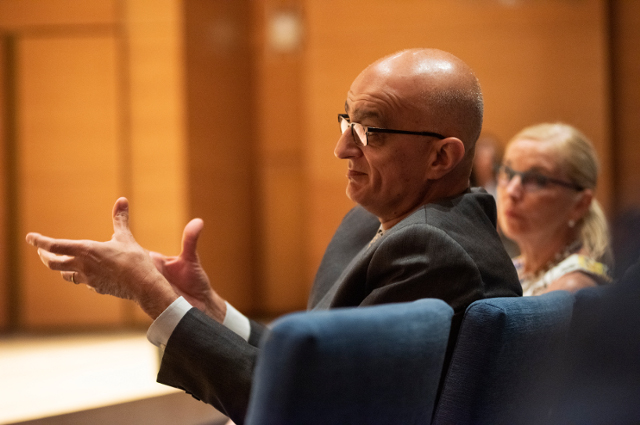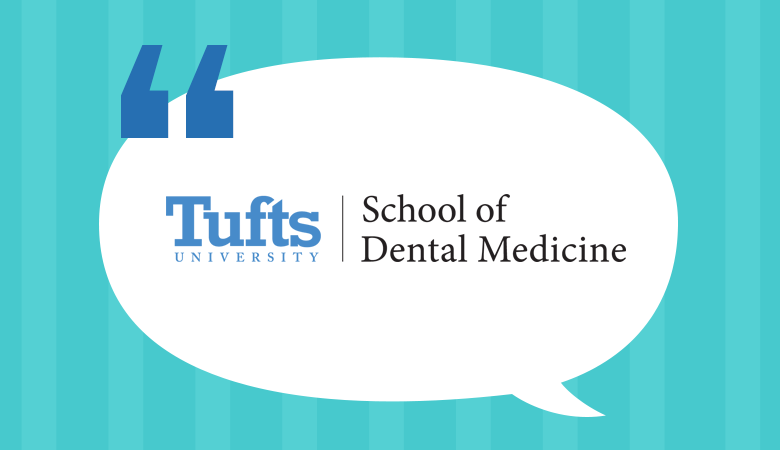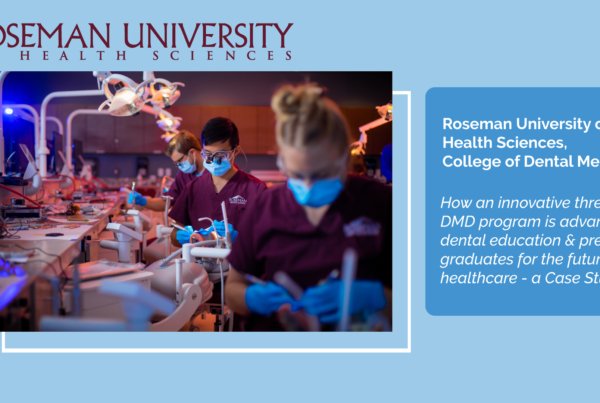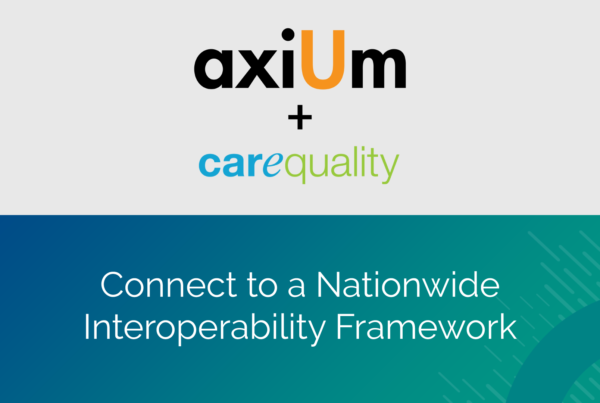Article reposted with permission from Tufts Now.
Written by Helene Ragovin.
The School of Dental Medicine recently hosted a summit on software to improve treatment, teaching, and research
One of the most essential tools at any dental school is something you can’t hold in your hand. It’s the software that supports patient records in the clinics, student training, faculty research, and the billing and management of the whole enterprise.
In the case of Tufts School of Dental Medicine, and most other dental schools in the U.S., there’s one product that handles it all, and so encouraging communication among these many users helps everyone deliver the best possible care.
That’s where the axiUm Midyear Meeting comes in. The School of Dental Medicine hosted the annual gathering of IT professionals, faculty, and financial and administrative staff who depend on the axiUm package from Exan Software, a Henry Schein Company, with more than 250 people coming to Tufts Medford/Somerville campus July 21-24.
At the opening of the conference, Dean Nadeem Karimbux greeted the 250 participants from forty-four schools. “We at Tufts University School of Dental Medicine are honored to have you here as our guests. The title of this year’s meeting, ‘Foundations and Innovations: Ride into the Future’ is an appropriate title as we witness the revolutions taking place in the information and digital environment and as we witness the upheavals we are experiencing in our health-care systems.”

Dean Nadeem Karimbux speaks at the axiUm Midyear Meeting, with Mary-Jane Hanlon, D97, associate dean for clinical affairs, at right. Photo: Ryan McBride
Tufts has been using axiUm for more than a decade, and last year, the School of Dental Medicine completed the consolidation of all its clinics and other functions on to the platform, encompassing tens of thousands of electronic health records. The vast majority of dental schools in North America use axiUm, so the conference is vital for sharing concerns and information.
“The vendor created the system, but the vendor doesn’t use the system,” said Jill LeClare, application administrator for Tufts Technology Services, one of the conference organizers. “The mission of the axiUm consortium group is to form a network, to communicate with each other, to present our common programming needs.” The users group has been meeting annually since 2010, with attendance growing from twenty-five people to now ten times that.
Software for dental schools covers clinical functions, much like programs for other health-care institutions do. But it also has to accommodate data for dental student education and the needs of researchers who use anonymized patient data for their studies. Integrating these functions with the financial aspects of running the dental school is key, LeClare said.
“From a technology perspective, it’s the ease of use of having the ability to pull financial records on a patient as they’re checking in; to send messages within the system to anyone, usually instantly; to check if there is a question on a patient’s medical history,” she said.
From an academic standpoint, the ability to use the system for electronic student evaluations has made things move much smoother, said Cindy Imai, N08, administrative coordinator in the dental school’s academic affairs office—especially because prior to 2016, that function was still done on paper.
Students now begin training on how to develop treatment plans and write case notes for simulated patients within the system during their first two preclinical years, so that once they start interacting with actual patients, they are already familiar with the process and are more productive in the clinic, Imai said.
The midyear conference, in addition to the networking opportunities, was a chance for Tufts to highlight the things Tufts does well using the axiUm system, or projects the dental school is working on, LeClare said. For instance, Darren Drag, D00, DG01, DG02, assistant professor and director of clinic operations for Tufts Dental Facilities (TDF), the statewide network of clinics Tufts operates for patients with special needs, led a session on how the TDF clinics have adapted the software for their target population.
Irina Dragan, DG15, MSD 15, DI19, assistant professor of periodontology, and her colleague from the University of Texas at Houston, Mohammed Walji, demonstrated how staging a “hackathon,” an exercise in which students are invited to pretend that they are dental deans and create their ideal dental curriculums from scratch, can help improve axiUm training in the dental curriculum and help find solutions to problems in dental education.
Tufts Professor Kanchan Ganda, head of the dental school’s division of medicine, addressed the details of integrating medical education into the dental school curriculum and how students are clinically evaluated in axiUm.
Other sessions included HIPAA privacy and security, using data from axiUm for grant funding, and tracking/resolving patient care complaints. Additional members of the Tufts Dental team who spoke included LeClare, Margaret Dwyer, associate director for patient experience in the dental school’s clinical affairs office, and Andre De Souza, assistant professor of prosthodontics.
Helene Ragovin can be reached at helene.ragovin@tufts.edu.






